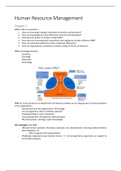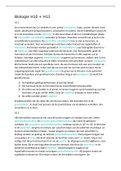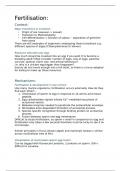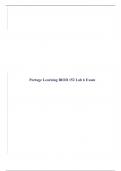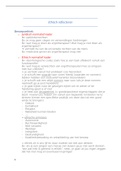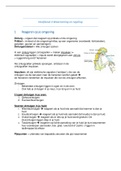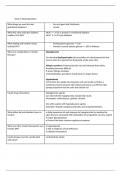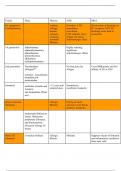Lecture 1: culture as a matter of life and death
Case study: Moluccan community in NL
- Fought with Dutch against Indonesians (because: wanted to establish Moluccan
nation, were protestant just like Dutch, were treated better than Indonesians by
colonizers and thus felt closer to Dutch than to Indonesians)
- Fought violently (separatist movement) to force Ducth government to support their
cause
- Were brought to the NL temporarily until nation was established, this never happened
so they’re still here
- Moluccan identity: cultural practice, because legally seen as either Dutch with
migration background or Indonesians living in Moluccan community -> place felt
experience as Moluccans above legal/political lack of acknowledgment of that identity
- Though culture is also political, as they fought for a separate state, independence
movement
How is culture a matter of life and death?
- [People who are politically oppressed, displaced, or persecuted may be driven] to a
point where they would rather die than give up on what organises their lives
meaningfully, affectively, sensibly: their own culture. (give life for their
culture=altruistic suicide) à life without culture not possible for humans?
How can we define culture:
- Culture is a form-of-life, embodied in how collectives of beings performatively shape
all aspects of their life and world, in communal existence, as a distinct and affectively
charged, meaningful expression that is transferable through time and space, that can
produce change, can resist change, or can cope with change. (Korsten, 18)
- Form-of-life: Culture is something you live
- Performative: Culture is something you do
- Communal existence: Culture is something you do/live together with others
- Affectively charged, meaningful expression: Culture is something you feel
- Transferable through time and space: Culture can be communicated through time and
space
- Produce/resist/cope with change: Culture can be our weapon, shield or shelter
Lecture 2: The Nation-State
Case Study: Yugoslavia
- Federation of 6 republics and 2 autonomous provinces
- ethnic tensions on the rise, growing nationalism in some of the individual republics
- Serbia’s leader controls 4 territories as he does not agree with their autonomy
- Other 4: three declare independence (Macedonia, Slovenia, and Croatia)
- Many independence-struggles and wars between the countries
- Many different ethnicities in different countries (minorities vs majorities)
- -> the concept of the nation-state implies stability and consensus, but in practice may
often be both the cause and result of conflicts over matters of belonging
, What is the paradox of self-determination?
- Self-determination = the process by which a country determines its own statehood
and forms its own government
- If the dynamic between a closed and open system of power-distribution is central to
all struggles for self-determination, we encounter a pivotal paradox: opening up a
space of one’s own also entails the closing down of that space for others
- To claim a territory as one’s own means to claim that this territory does not belong to
others à Every claim of “self” implies a claim of “others”
Why is the nation state culturally determined?
- The nation-state fuses a political notion, the state, with a cultural one: the nation
- Nation: “an extensive aggregate of persons, so closely associated with each other by
common descent, language, or history as to form a distinct race or people.” à cultural
element: commonality of descent, language and history
- State: legal-political entity, with citizens (passport proves that you are a legal subject,
implies a contract between yourself and the state you belong to)
- Nation: cultural, quasi-entity with its members that are defined in terms of
immanence (still Dutch, even if passport is taken away)
à Before conflicts over natural belonging erupt into war: different claims of true nationality
are negotiated culturally: by constructing imaginations/fictions/myths of unity through time
and space, based on the (re-)interpretation of history and traditions
Example of cultural construction of nationalism: Kosovo Myth
- Serbia: Battle of Kosovo (between Ottoman empire and Serbia) as historical marker for
self-determination struggle
- Serbian ruler was beheaded:
- For Ottoman Turks: indicated the downfall of Serbian society and their acceptance of
Ottoman occupation
- For Serbs: act of martyrdom and a promise that the Serbian people will eventually
triumph over their oppressors
- Even in 90s ‘Turks’ was used as term to refer to Bosniaks as the ‘Other’ à justified
Serbian violence against Bosniaks during the Bosnian war
How can we define culture?
- Form-of-life: The nation-state is not just a political construct, it is something that
determines your life, especially if you live in a territory as part of an ethnic group that
is politically regarded as part of the “Others” (Serbs in some territories, Bosniaks or
Albanians in others, etc.)
- Performative: National belonging is performed through active remembrance of
historical events, to create a timeline that can justify actions in the present
- Communal existence: This performance of memory is aimed at developing a sense of
collective/communal belonging
- Affectively charged, meaningful expression: Such myth-making works on people’s
feeling of belonging -> when Bosnian Serbs claim that Bosniaks don’t belong in Bosnia,
it feels wrong: the injustice is affective Felt injustice is a better incentive for (violent)
Case study: Moluccan community in NL
- Fought with Dutch against Indonesians (because: wanted to establish Moluccan
nation, were protestant just like Dutch, were treated better than Indonesians by
colonizers and thus felt closer to Dutch than to Indonesians)
- Fought violently (separatist movement) to force Ducth government to support their
cause
- Were brought to the NL temporarily until nation was established, this never happened
so they’re still here
- Moluccan identity: cultural practice, because legally seen as either Dutch with
migration background or Indonesians living in Moluccan community -> place felt
experience as Moluccans above legal/political lack of acknowledgment of that identity
- Though culture is also political, as they fought for a separate state, independence
movement
How is culture a matter of life and death?
- [People who are politically oppressed, displaced, or persecuted may be driven] to a
point where they would rather die than give up on what organises their lives
meaningfully, affectively, sensibly: their own culture. (give life for their
culture=altruistic suicide) à life without culture not possible for humans?
How can we define culture:
- Culture is a form-of-life, embodied in how collectives of beings performatively shape
all aspects of their life and world, in communal existence, as a distinct and affectively
charged, meaningful expression that is transferable through time and space, that can
produce change, can resist change, or can cope with change. (Korsten, 18)
- Form-of-life: Culture is something you live
- Performative: Culture is something you do
- Communal existence: Culture is something you do/live together with others
- Affectively charged, meaningful expression: Culture is something you feel
- Transferable through time and space: Culture can be communicated through time and
space
- Produce/resist/cope with change: Culture can be our weapon, shield or shelter
Lecture 2: The Nation-State
Case Study: Yugoslavia
- Federation of 6 republics and 2 autonomous provinces
- ethnic tensions on the rise, growing nationalism in some of the individual republics
- Serbia’s leader controls 4 territories as he does not agree with their autonomy
- Other 4: three declare independence (Macedonia, Slovenia, and Croatia)
- Many independence-struggles and wars between the countries
- Many different ethnicities in different countries (minorities vs majorities)
- -> the concept of the nation-state implies stability and consensus, but in practice may
often be both the cause and result of conflicts over matters of belonging
, What is the paradox of self-determination?
- Self-determination = the process by which a country determines its own statehood
and forms its own government
- If the dynamic between a closed and open system of power-distribution is central to
all struggles for self-determination, we encounter a pivotal paradox: opening up a
space of one’s own also entails the closing down of that space for others
- To claim a territory as one’s own means to claim that this territory does not belong to
others à Every claim of “self” implies a claim of “others”
Why is the nation state culturally determined?
- The nation-state fuses a political notion, the state, with a cultural one: the nation
- Nation: “an extensive aggregate of persons, so closely associated with each other by
common descent, language, or history as to form a distinct race or people.” à cultural
element: commonality of descent, language and history
- State: legal-political entity, with citizens (passport proves that you are a legal subject,
implies a contract between yourself and the state you belong to)
- Nation: cultural, quasi-entity with its members that are defined in terms of
immanence (still Dutch, even if passport is taken away)
à Before conflicts over natural belonging erupt into war: different claims of true nationality
are negotiated culturally: by constructing imaginations/fictions/myths of unity through time
and space, based on the (re-)interpretation of history and traditions
Example of cultural construction of nationalism: Kosovo Myth
- Serbia: Battle of Kosovo (between Ottoman empire and Serbia) as historical marker for
self-determination struggle
- Serbian ruler was beheaded:
- For Ottoman Turks: indicated the downfall of Serbian society and their acceptance of
Ottoman occupation
- For Serbs: act of martyrdom and a promise that the Serbian people will eventually
triumph over their oppressors
- Even in 90s ‘Turks’ was used as term to refer to Bosniaks as the ‘Other’ à justified
Serbian violence against Bosniaks during the Bosnian war
How can we define culture?
- Form-of-life: The nation-state is not just a political construct, it is something that
determines your life, especially if you live in a territory as part of an ethnic group that
is politically regarded as part of the “Others” (Serbs in some territories, Bosniaks or
Albanians in others, etc.)
- Performative: National belonging is performed through active remembrance of
historical events, to create a timeline that can justify actions in the present
- Communal existence: This performance of memory is aimed at developing a sense of
collective/communal belonging
- Affectively charged, meaningful expression: Such myth-making works on people’s
feeling of belonging -> when Bosnian Serbs claim that Bosniaks don’t belong in Bosnia,
it feels wrong: the injustice is affective Felt injustice is a better incentive for (violent)


